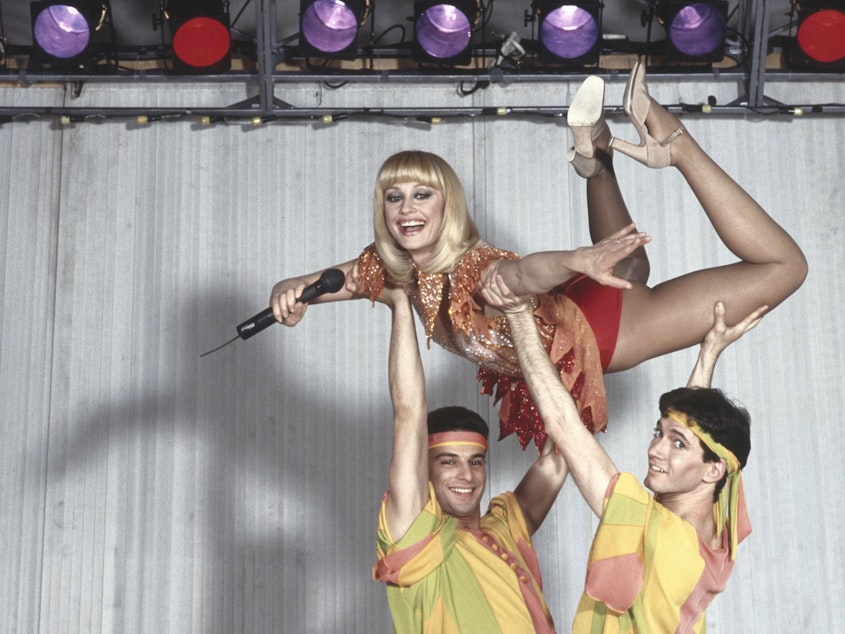Raffaella Carrà, Glittery Queen Of Italian TV, Has Died At 78

Italians are mourning the death of a beloved entertainer often referred to as "the lady" or "the queen" of Italian television.
78-year-old Raffaella Carrà died in Rome after a long illness, according to her family. "She has gone to a better world, where her humanity, her unique laughter and her extraordinary talent will shine forever," wrote her choreographer, longtime partner and close friend Sergio Japino in a statement carried by the Italian news agency ANSA on Monday.
An exuberantly glamorous singer, actor and TV presenter known for glittery jumpsuits and a shiny blonde bob, Carrà hosted numerous Italian shows, with guests ranging from Nobel prize winners to hula hoop virtuosos. She crossed over into Spanish and Latin American entertainment at the height of her popularity, and emerged as an outspoken gay icon, partly because of a song she recorded in the mid-1970s celebrating the beauty of gay men. Over the years, Carrà would be compared by Americans to Donna Summer, Barbara Walters and Ann-Margret, but it might be most accurate to imagine a compelling combination of all three.
Carrà helped spark a sexual revolution in Italy
"Without trying to be, she was really a feminist pioneer in Italy," NPR's Sylvia Poggioli wrote in an email upon the singer's passing, describing Carrà as "cool" and "gutsy." In a news spot for the network, Poggioli said the singer helped spark a sexual revolution in Italy, both by baring her midriff on conservative state-run television in 1970 and through her irrepressibly catchy hit songs celebrating women's sexual pleasure and confidence, including "A Far l'Amore Comincia Tu" ("Be the One Initiating Sex").
Sponsored
Born in Bologna, Carrà started appearing in movies as a small child. She co-starred with Frank Sinatra in a Hollywood World War II drama set in Italy, Von Ryan's Express, when she was in her early 20s. Soon after, Carrà grew into a formidable cultural force on Italian television. Programs such as Canzonissima and Fantastico showcased her considerable talents and at one point in the 1980s, regularly drew 25 million viewers, nearly a half of what was then Italy's population.
She was also known for serious TV interviews
While Carrà may mostly be remembered for her upbeat, sex-positive performances, Poggioli points out that Carrà's 1987 interview with Paula Cooper — a young Black American woman convicted of murder — is credited with helping get Cooper off Indiana's death row. The year before, Carrà held her own in an interview with David Letterman on his talk show during a visit to the U.S. She was not a woman to be pushed around.
The singer's 60-year career found a second wind in Spain and across Latin America after the fall of dictator Francisco Franco. She recorded dozens of songs in Spanish and in 2018, the king of Spain made her a dame, "al orden del mérito civil" for being "an icon of freedom." A Spanish jukebox musical called Explota Explota based on her hits came out last year — it makes a strong case for Carrà as a sort of one-woman ABBA of the Mediterranean.
The star never married and did not have children. The Rome mayor's office announced that Italian citizens will be able to pay respect to Raffaella Carrà tomorrow evening, as her coffin lies in state at city hall. Her funeral will be held Friday in the nearby church of Ara Coeli. [Copyright 2021 NPR]



